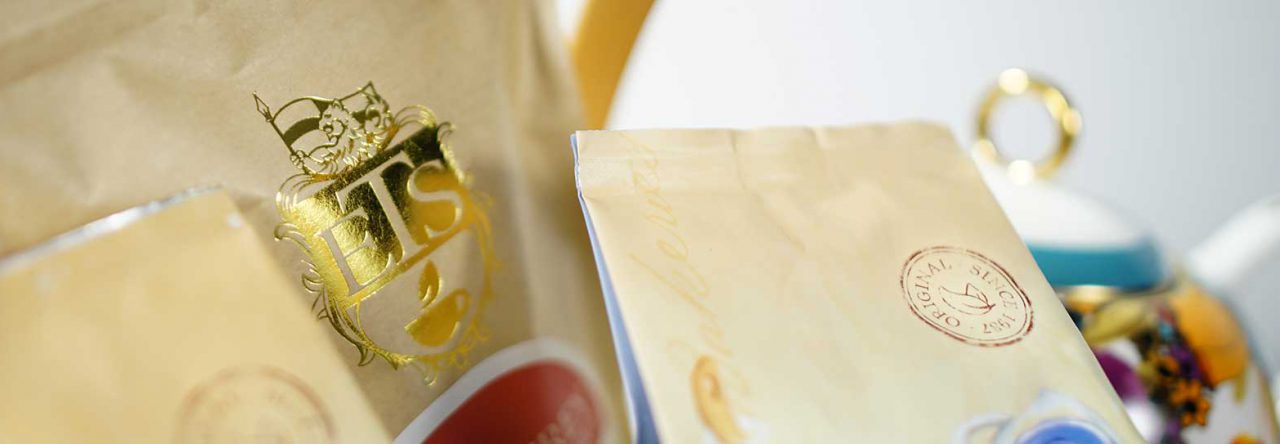There’s an orchard in your teapot — at least there can be if you’re steeping a tea with fruit added in. Adding fruits to tea has been a tea tradition almost as long as there has been tea. (Say that three times fast, if you can.)
Oil of bergamot (a type of orange) that’s used to make Earl Grey tea is one of the most common. You can drink it hot, both plain and enhanced with milk and sweetener, or chilled. That unique, but non-fruity, flavor comes through either way.

Lemon is another fruit that’s commonly used in tea to the extent that you can now buy teas with the lemon flavoring already added in. These pre-made lemon teas often also contain a lot of sweetener to offset the sourness of the lemon, so check the package label. Sugar and Stevia seem to be the two most commonly used.
One of the great things about teas with fruit added is they are fabulous chilled (or iced). If you use a fruit that is naturally sweet, that sweetness will take away any bitterness there might be in the tea. Try one with blueberries. Cranberry is also great but can be hard to find since some tea vendors consider it seasonal, or you could make your own by adding some minced Craisins to the dried tea before steeping. You can also mix up a tropical tea with mango, papaya, and passion fruit. Turkish Apple Tea is another great alternative, hot or cold.
A recent trend is bubble tea, made not only with tapioca balls, milk, and tea, but with fruit flavoring, including pineapple, honeydew, passion fruit, lemon, peach, grape, banana, and mango.
Some Black Teas with Fruit Added:
- Apple Spice — Tea with the fresh fruity flavor of orchard apples with touches of cinnamon. Somehow this tea transcends the seasons (equally great during the Thanksgiving-Christmas holidays and in Summer). You can enjoy it hot or chilled year round.
-

Orange Spice Orange Spice — Similar to Apple Spice but with the tang of Florida oranges and a dash of fresh cinnamon. Another one to enjoy hot or chilled and with no chemical aftertaste since the flavorings are all natural.
- Angels Dream — Tea with wild blackberry and maple. Yum! Like pancakes in a teacup, but a lot fewer calories. What makes this a cut above other fruit teas is the kind of black tea used, a blend of Sri Lankan, Formosan, and Assam.
- Harney & Sons Black Currant Tea — Healthy and tasty, full of such beneficial ingredients as vitamin C and phytonutrients. What more could you want?
- Mango Mist — Bits of dried mango blended with tea, but not just any tea. Ceylon tea grown at 5,500 feet or more above sea level. Must be that oxygen-thin atmosphere that gives the tea its exceptional flavor.
- Golden Moon Honey Pear — Start with top quality black tea and mix with smooth honey and sweet ripe pear. Drink it hot or chilled for a great taste treat with no need to add sweetener!
Some Green Teas with Fruit Added:
- Sencha Kyoto Cherry Rose Festival Green Tea — High quality green tea with sweet cherry and morning rose flavor. My recent taste test as part of the Great Springtime Green Tea Extravaganza confirmed that this tea is a top quality fruit tea, both hot and chilled.
- Blueberry Flavored Green Tea — Green Pekoe Gunpowder tea and antioxidant-rich blueberries make a naturally sweet yet wonderfully tasty and healthful beverage, both hot and chilled.
- Bohemian Raspberry Loose Leaf Green Tea — Blending Sencha green tea and natural raspberry flavor. Another tea I tested as part of the Great Springtime Green Tea Extravaganza where the taste lived up to its reputation.
- Lemon Green Tea — Healthy green tea and tart lemon makes a refreshing chilled tea, one that really beats the heat!
Some White Teas with Fruit Added:
 Revolution White Pomegranate Tea — Refreshing any time of the day and guilt-free, since it’s good for you with antioxidants galore.
Revolution White Pomegranate Tea — Refreshing any time of the day and guilt-free, since it’s good for you with antioxidants galore.- Harney & Sons White Tea with Vanilla Grapefruit — A refreshing tea with light and smooth citrus tone with the immediately identifiable aroma of vanilla. Grapefruit has also gained a reputation as a diet aid.
- Golden Moon White Persian Melon Tea — How exotic! Flavored white tea infused with the nectar of melon. A true delight, especially chilled, and needing no sweetener thanks to the natural flavoring of the melon.
An important note to keep in mind when you buy these teas: Buy from a vendor that sells in airtight containers. Pouches are best for loose teas (you can squeeze out excess air as you use up the tea), but the plastic needs to be thick enough to prevent aromas from escaping out or other aromas from leeching in. Flavor and fragrance are what fruit teas are mostly about. Don’t ruin your tea tasting experience by purchasing teas improperly packaged.
Hope this has given you a few options to start with as you begin your adventure into the world of fruit teas. Next time, I’ll be pointing out some tea-less fruit infusions for those who want to get away from caffeine.
Stay tuned for Part II of this three-part series, and in the meantime check out A.C.’s blog, Tea Time with A.C. Cargill!



Leave a comment